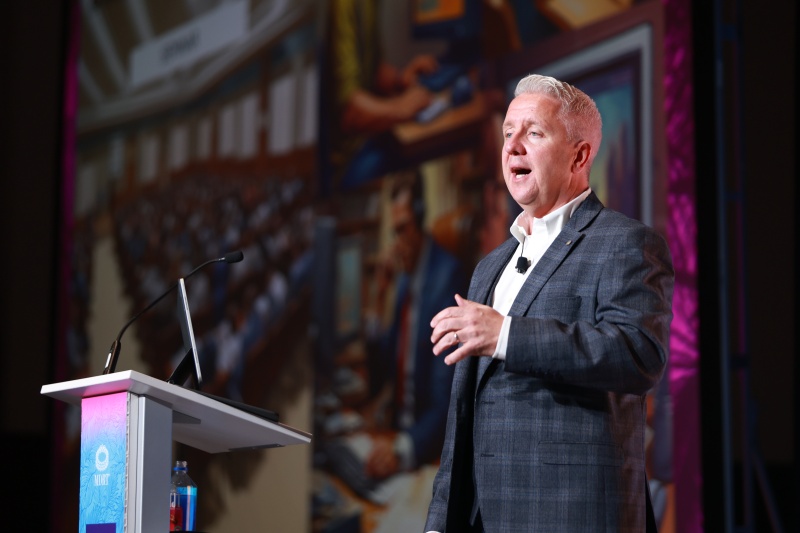Engaging with the children of clients is the key to ensuring the family’s wealth remains with an advice business for generations, according to an adviser speaking at the 2025 MDRT Annual Meeting in Miami.
Craig Palfrey, from Penguin Wealth in Wales, highlighted his strategies to his audience of peers, which are intended to maximise client engagement and business growth, noting that advisers spend too much time chasing clients.
As part of his presentation he set out to show advisers how a family’s wealth can stay with the business for generations.
Palfrey pointed to statistics that indicate that 70% of widows change advisers once their husband has died, as do 90% of beneficiaries when both parents are gone.
Pressing home the point that financial advisers wanted to be the third call a family made when someone has died (after the ambulance and the undertaker) he outlined a number of steps to keep close to both the client and the family.
Palfrey’s says his business has 30 touch points a year with clients and his action plan for advisers included:
- Educational client briefings twice a year as a minimum
- Hold family meetings and get in front of trustees, executors and beneficiaries before they need you
- Connect with professional partners, teach them something useful
- Have a communication strategy and strong visibility
- Control the estate planning journey, meeting the key people and “…be the third phone call.”
Educational Briefings
On the two planned educational client briefings a year, Palfrey says that a tax briefing event has proved very popular and creates new opportunities for his advice practice.
He says if 80 to 100 people are together something shifts, human nature kicks in when they see other people taking notes and it makes them take action.
If an adviser can’t talk about tax in their jurisdiction, other ideas included the top seven mistakes people make in their wills (half the audience won’t have a will) or how to be an executor without messing it up.
He also suggested tweaking how advisers invite people to briefings, making it feel exclusive, calling personally and making the offer to bring a friend.
…most professionals don’t know as much as advisers think they do about financial advice…
Another point was to run educational briefings for the teams of professional connections on topics such as pensions 101. He has found these sessions for professional firms result in a good number referrals and says most professionals don’t know as much as advisers think they do about financial advice, and don’t understand the value of what advisers do.
“If you take the time to educate them in a way that makes sense they will send business your way.”
As well as accountants, he points to estate agents, property investment networks, solicitors, care homes, mortgage brokers and business networks.
Control the Estate Planning Journey
Another point was many advisers may potentially lose millions of dollars in client wealth and thousands in fees every year because they are not in charge of the estate planning journey.
When a client dies, someone in the family may take their business elsewhere, and Palfrey suggests bringing up wills and trusts in every client meeting, don’t assume they have done one, noting that working on the estate planning journey earns the family’s trust.

He also highlighted ‘next generation workshops,’ for family members, on things like how to be executor, how to be a trustee, what being an attorney means, all as part of the client agreement.
Palfrey also brings family groups into the office saying these family meetings are not just to meet the children but to help them understand what the clients have set up for after they die and how it will work.
Suggest to the parents they have a family meeting to walk their children through what has been put in place, framing these as educational sessions. He says some of those clients’ children have become top clients.
It’s about protecting the clients’ financial plan.
…if you don’t meet with the next generation before they inherit, you risk losing them…
Palfrey says if you don’t meet with the next generation before they inherit, you risk losing them.
He also suggests offering a free will service to clients’ adult children perhaps when the clients’ first grandchild is born.
“We are not doing this because we want to become a will writing business, but because it gets the family in front of us so we can control the journey.”
Forward Planning Meetings
Palfrey says that 10 years ago his firm changed client ‘annual review’ meetings into a ‘forward planning’ meeting.
His firm has a forward planning meeting with clients to check the legacy plan is still on track and open the door for bigger conversations.
Penguin also looks at pension planning for the adult children in these meetings and reviewing their protection needs, through life insurance and income protection.
